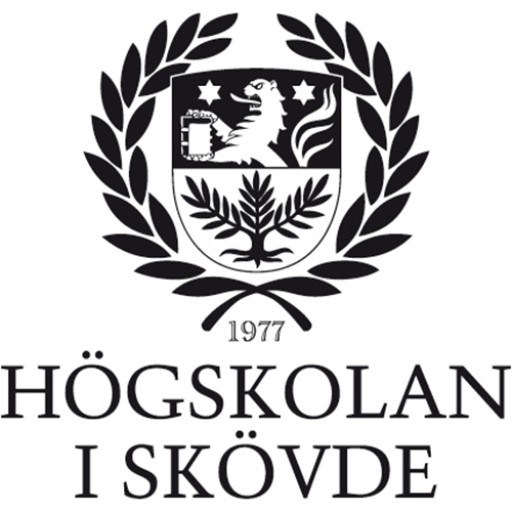Photos of university / #umeauniversitet
The Bachelor's Programme in Computing Science at Umeå University offers students a comprehensive foundation in the core principles and practical skills necessary to excel in the rapidly evolving field of computing and information technology. This program is designed to prepare students for a wide range of professional roles, including software development, systems analysis, database management, and computer network administration, as well as for further studies in master's programs related to computer science and engineering. Throughout the three-year curriculum, students engage with fundamental topics such as programming, algorithms, data structures, computer architecture, and operating systems, providing them with a solid technical understanding. Additionally, the program emphasizes the importance of problem-solving, analytical thinking, and teamwork, often involving project-based learning and collaboration with industry partners to mimic real-world scenarios. Students also explore specialized areas like artificial intelligence, machine learning, web development, and cybersecurity, gaining insight into cutting-edge technologies shaping the digital landscape. The program promotes an active learning environment supported by modern labs, computer facilities, and access to current software tools, ensuring students acquire hands-on experience. Umeå University's internationally recognized research environment enables students to learn from expert faculty involved in innovative research projects. As part of the program, students are encouraged to develop both technical proficiency and professional skills, such as communication, project management, and ethical considerations in technology. The degree aims to equip graduates with the knowledge and skills necessary to adapt to ongoing technological advancements and contribute meaningfully to society and industry. Graduates of this program are well-positioned to enter the labor market or continue their education at the master's level, either within Sweden or internationally. With its strong focus on both theory and practice, the Bachelor's Programme in Computing Science at Umeå University provides a solid starting point for a dynamic and rewarding career in the digital age.
The Bachelor's Programme in Computing Science at Umeå University offers a comprehensive education designed to prepare students for a dynamic and rapidly evolving field. The program provides a solid foundation in computer science principles, combined with practical skills and theoretical knowledge necessary to excel in various technology-driven industries. Students will explore core areas such as algorithms, programming, software engineering, data structures, and systems development, ensuring a thorough understanding of both foundational concepts and innovative methodologies.
The curriculum integrates a wide range of courses that focus on programming languages, software design, and project management, enabling students to develop efficient and reliable software solutions. Emphasis is placed on problem-solving techniques, critical thinking, and teamwork, which are vital skills in today's collaborative tech environment. The program also includes studies in information systems, databases, cybersecurity, and artificial intelligence, providing students with a broad perspective on contemporary computing challenges and opportunities.
Throughout their studies, students will have access to modern labs and software tools, allowing for hands-on experience that complements theoretical learning. They are encouraged to participate in project work, internships, and collaborations with industry partners, fostering practical skills and professional networks that can accelerate their career development. The programme also emphasizes ethical considerations and sustainable practices in technology, ensuring graduates are prepared to contribute responsibly to society.
In addition to technical expertise, the program aims to develop students’ communication skills, enabling them to clearly articulate complex ideas to both technical and non-technical audiences. Upon graduation, students will be equipped to pursue careers in software development, system analysis, data management, research, or continue their education with master's studies in specialized areas of computing science. The Bachelor's Programme in Computing Science at Umeå University is dedicated to fostering innovative, capable, and ethically conscious computing professionals ready to meet future challenges in technology.
Programme Requirements: The Computing Science Bachelor’s programme at Umeå University is designed to provide students with a solid foundation in computer science, programming, algorithms, and information technology. Applicants are typically expected to have completed secondary education with strong skills in mathematics and physics. Proficiency in English is mandatory, demonstrated through standardized tests such as TOEFL or IELTS. For international students, a minimum TOEFL score of 90 (internet-based) or an IELTS score of 6.5 is generally required. Swedish applicants must meet the Swedish upper secondary school prerequisites, including advanced courses in Mathematics (such as Mathematics B or C) and Physics. Prior experience in programming languages like Java, C++, or Python is advantageous but not strictly necessary, as the programme introduces programming concepts from the start. Admissions are based on academic merits, and a competitive grade point average (GPA) from previous studies is essential. Additional qualifications may include relevant work experience or extracurricular activities related to software development, information technology, or problem-solving skills. The programme also values applicants’ motivation and interest in computing science, which can be demonstrated through a personal motivation letter or interview. Prospective students should ensure that their application dossiers are complete, including transcripts, proof of English proficiency, CV, and motivation statements. Applicants are advised to check the specific admissions criteria published annually by Umeå University, as requirements may vary slightly from year to year. Successful applicants will be expected to undertake initial courses in programming, mathematics, and basic computer systems, progressing to more advanced topics such as software engineering, data structures, and algorithms in subsequent semesters. The programme aims to prepare students for various careers within the IT industry, research, or further studies, and thus emphasizes both theoretical understanding and practical skills.
Financing studies at Umeå University for the Computing Science program can involve several options for students seeking financial support during their studies. The university offers scholarships and grants aimed at both domestic and international students, which can significantly offset tuition fees and living expenses. For international students, Umeå University provides various scholarship programs, such as the Umeå Institute of Design Scholarships and Faculty-specific scholarships, which are awarded based on academic performance, motivation, and financial need. These scholarships often cover partial or full tuition fees and are highly competitive, requiring applicants to submit a comprehensive application including academic transcripts, a personal statement, and letters of recommendation.
In addition to scholarships, students may access government-backed student loans and grants depending on their home country's agreements with Sweden. The Swedish Public Housing Agency (Bostadsförmedlingen) offers housing support, which can reduce accommodation costs for students, and student union memberships may also provide discounts on various services, including transportation, books, and cultural activities, thereby decreasing overall study expenses.
Students enrolled in the Computing Science program at Umeå University are encouraged to explore part-time employment opportunities within the university or in the local community. Umeå has a vibrant student job market, with positions available in research assistance, library services, teaching support, and administrative roles. These jobs help students gain practical experience while providing additional income to support living costs. Moreover, the university offers career counseling and workshops to improve students' employability, which can aid in securing part-time work.
For students requiring additional financial assistance, there are external funding sources such as Erasmus+ mobility grants for students participating in exchange programs or internships abroad as part of their degree. Many students also apply for scholarships from organizations related to their home country or international organizations supporting higher education.
Living costs in Umeå are generally moderate compared to larger Swedish cities like Stockholm or Gothenburg. Students should budget for accommodation, food, insurance, study materials, and leisure activities. University-arranged student accommodation options tend to be more affordable and offer a centralized way to find housing, often covered by a fixed rent. Students are advised to plan their finances carefully to ensure they can cover these expenses throughout their studies.
In summary, financing a Computing Science degree at Umeå University can be achieved through a combination of scholarships, government grants, part-time employment, and personal savings. Early application for financial aid, active participation in student support programs, and prudent financial planning are essential for a successful and stress-free educational experience.
The Bachelor of Science in Computing Science at Umeå University is a comprehensive undergraduate program designed to equip students with a solid foundation in the principles and applications of computing. The program typically covers essential areas such as programming, algorithms, data structures, software development, computer architecture, and systems analysis. Students have the opportunity to explore various domains within computing, including software engineering, web development, database systems, and network technologies, through a combination of theoretical coursework and practical project work.
The program aims to develop students' problem-solving skills, analytical thinking, and technical expertise, preparing them for careers in software development, IT consulting, systems analysis, or for further studies at the master's level. The curriculum emphasizes the importance of teamwork, communication skills, and ethical considerations in the digital world. Students are encouraged to undertake internships, participate in research projects, and collaborate with industry partners to gain real-world experience.
At Umeå University, the program is delivered by experienced faculty members who are involved in cutting-edge research and industry collaborations. The teaching methodology includes lectures, seminars, laboratory exercises, and project work, fostering an engaging learning environment. The university also provides modern facilities and resources, including computer labs and research centers, to support student learning.
Graduates of the Computing Science program are well-prepared to enter a rapidly evolving job market, where demand for skilled IT professionals continues to grow. Many students choose to continue their education by pursuing master's degrees in specialized areas such as data science, artificial intelligence, cybersecurity, or software engineering. The program promotes a global perspective, encouraging international exchange and multicultural teamwork, which are valuable in today’s interconnected world.
Overall, the Computing Science degree at Umeå University offers a well-rounded education that combines theoretical knowledge with practical skills, providing students with the confidence and competence needed to succeed in the digital age and to contribute innovatively to the development of information technology solutions.




